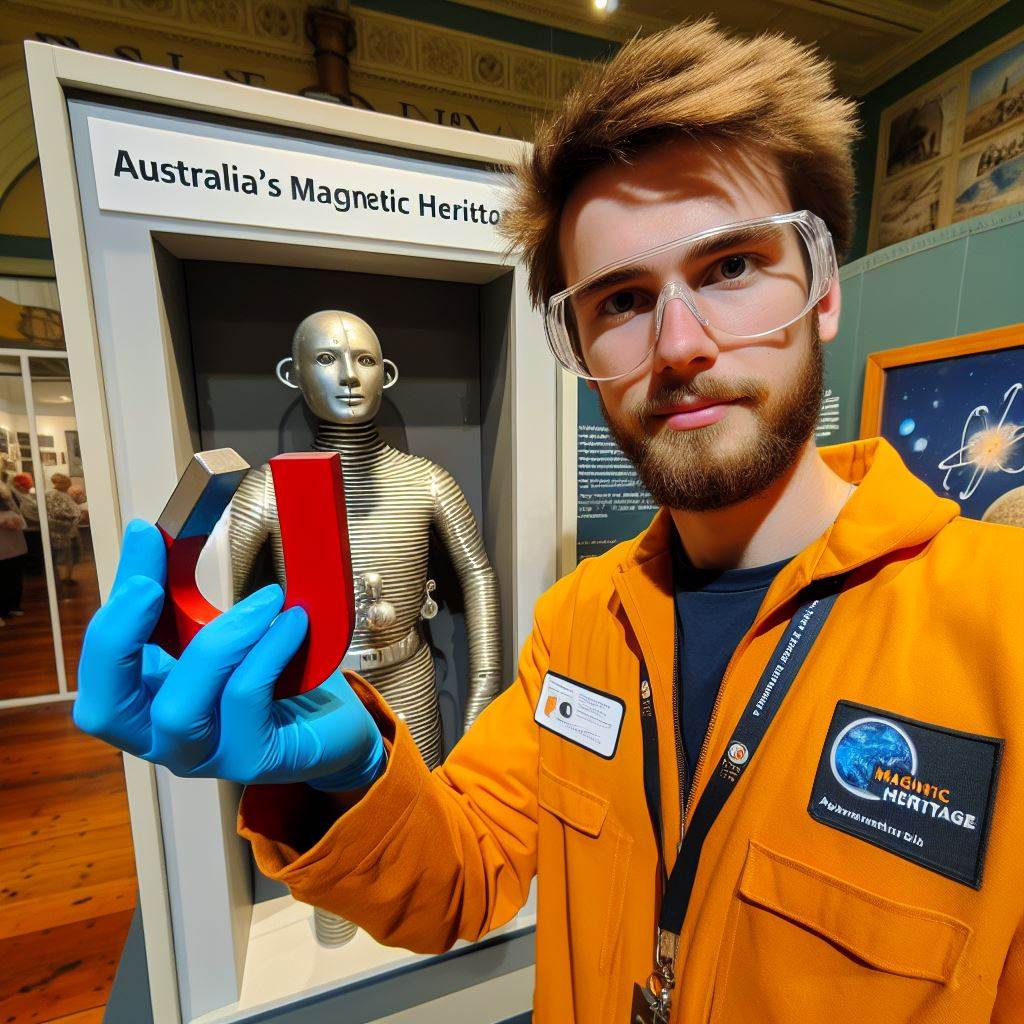Introduction
Securing funding for research projects is crucial in Australia as it allows researchers to conduct innovative studies and make significant contributions to their field.
Without adequate funding, research projects may not be able to proceed, hindering potential advancements and discoveries.
In this blog section, we will explore the various avenues available for funding research in Australia and offer valuable insights and tips for researchers on how to secure funding for their projects.
Whether you are an early-career researcher or an established professional, understanding the funding landscape in Australia is essential for the success and sustainability of your research endeavors.
So, let’s dive into this topic and discover how to effectively navigate the funding journey in Australia, ensuring the advancement of knowledge and the betterment of society.
Types of research funding available in Australia
When it comes to funding your research in Australia, there are several options available. Depending on your eligibility and the nature of your research, you can explore the following funding avenues.
Government Grants
- Australian Research Council (ARC) grants: Highly competitive grants for diverse research disciplines.
- National Health and Medical Research Council (NHMRC) grants: Funding specific to health and medical research.
- Cooperative Research Centers (CRC) grants: Support research collaborations between industry, government, and research organizations.
- Department of Industry, Innovation, and Science grants: Funding for research in science and technology fields.
Industry Collaborations
- Collaborative Research Networks (CRN): Facilitates partnerships between industry and universities to support research.
- Industry-sponsored research projects: Companies may fund research projects aligned with their goals and interests.
- Co-investment opportunities: Industry partners contribute both funding and resources to research projects.
Scholarships
- Australian Government Research Training Program Scholarships (RTPS): Fully funded scholarships for domestic and international students.
- University-specific scholarships: Institutions offer scholarships to attract and support talented researchers.
- Industry-funded scholarships: Companies may provide scholarships to students working on projects relevant to their industry.
- International scholarships: Australia offers scholarships for international students to conduct research in the country.
It is essential to understand the eligibility criteria and the application process for each funding option.
Government Grants Eligibility and Application Process
To be eligible for government grants, researchers need to demonstrate their expertise and the potential impact of their research. The application process usually involves the following steps
- Identify the suitable grant program based on your research area.
- Review the guidelines and eligibility criteria provided by the funding agency.
- Prepare a detailed research proposal highlighting the significance and objectives of your project.
- Collaborate with potential partners if required.
- Submit the application within the specified deadline.
- The application undergoes a rigorous peer-review process.
- If successful, you will be awarded the funding.
Examples of Notable Funding Programs in Australia
- Discovery Projects: ARC-funded program supporting discovery and innovation in various research disciplines.
- Future Fellowships: ARC program providing financial support to outstanding mid-career researchers.
- Medical Research Future Fund (MRFF): Supports cutting-edge medical research to improve health outcomes.
- Australian Renewable Energy Agency (ARENA): Funds research in renewable energy technologies and innovation.
- National Breast Cancer Foundation (NBCF): Provides grants for breast cancer research and projects.
These examples represent just a fraction of the funding programs available in Australia. Researchers should explore various options to find the most suitable funding source for their specific research.
Generally, funding research in Australia is possible through government grants, industry collaborations, and scholarships. Each funding option has its own eligibility criteria and application process.
By understanding these options and exploring various funding programs, researchers can secure the necessary resources to pursue their research goals effectively.
Government grants and funding programs
In Australia, there are various government grants and funding programs available for researchers to support their projects. These grants are offered by several funding bodies and agencies. Additionally, the government has launched several initiatives to support research in the country.
Different Government Grants Available for Research Projects
- Australian Research Council (ARC) Grants: ARC offers a range of grants to support research projects in different disciplines such as science, social sciences, humanities, and more. These grants provide financial assistance to researchers to conduct their projects.
- National Health and Medical Research Council (NHMRC) Grants: NHMRC provides grants to fund research projects related to health and medical sciences. These grants support research studies, clinical trials, and the development of new treatments and therapies.
- Cooperative Research Centers (CRC) Grants: CRC grants are aimed at fostering collaboration between industry, government, and research institutions. These grants support research projects that have commercial potential and can contribute to economic growth.
- Department of Education, Skills and Employment Grants: This department offers grants to support research projects in the field of education, training, and employment. These grants aim to improve the quality of education and enhance workforce skills.
Funding Bodies and Agencies Offering Research Grants
- Australian Research Council (ARC): ARC is a major funding body in Australia that offers grants for research projects in various disciplines. They provide funding through competitive grant schemes.
- National Health and Medical Research Council (NHMRC): NHMRC is another significant funding body that supports research projects in the field of health and medical sciences. They offer grants through a peer-reviewed competitive process.
- Commonwealth Scientific and Industrial Research Organization (CSIRO): CSIRO is Australia’s national science agency and provides funding for research projects in areas such as climate change, agriculture, and technology development.
- Australian Institute of Aboriginal and Torres Strait Islander Studies (AIATSIS): AIATSIS offers grants to support research projects that focus on Indigenous issues, culture, and history.
Government Initiatives Supporting Research in Australia
- National Collaborative Research Infrastructure Strategy (NCRIS): NCRIS is a government initiative that provides funding for research infrastructure and facilities. It aims to enhance collaboration and enable world-class research.
- Medical Research Future Fund (MRFF): MRFF is a significant initiative that provides long-term funding for medical research projects. It aims to improve health outcomes and support innovative medical research in Australia.
- Advancing Science and Research: This government initiative supports research and development in Australia. It aims to encourage innovation, boost economic growth, and promote collaboration between industry and research institutions.
- Research Training Program (RTP): RTP provides funding for postgraduate and research training. It supports domestic and international students pursuing research degrees in Australian universities.
In general, Australian researchers have access to various government grants and funding programs to support their research projects.
These grants are offered by funding bodies such as ARC, NHMRC, and CSIRO. Additionally, the government has launched initiatives like NCRIS, MRFF, and RTP to further support research endeavors in the country.
Read: Navigating Chem Grad Studies in Australia
Industry collaborations and partnerships
Exploring the benefits of collaborating with industries for research funding
Collaborating with industries for research funding offers numerous benefits. Firstly, it allows researchers to access additional financial resources that might not be available through traditional funding channels.
This is especially important in fields where research can be expensive, such as biomedical or engineering research.
Secondly, industry collaborations provide researchers with access to valuable expertise and resources that can enhance the quality and impact of their research.
By working closely with industry partners, researchers can gain insights into real-world problems and apply their research findings in practical ways. This not only increases the relevance of their work but also opens up opportunities for knowledge exchange and technology transfer.
Building partnerships and negotiating funding agreements with industry partners
Building successful partnerships with industry partners requires careful planning and effective communication. Here are some strategies to consider
- Identify potential partners: Research companies or organizations that align with your research goals and objectives. Look for companies that have a strong track record in supporting research and innovation.
- Establish common interests: Find areas of mutual interest or overlap between your research and the industry partner’s goals. This will help create a strong foundation for collaboration.
- Network and make connections: Attend industry events, conferences, and workshops to meet potential partners. Use these opportunities to showcase your work and discuss potential collaborations.
- Develop a compelling proposal: Clearly articulate the potential benefits and outcomes of the collaboration. Highlight how the partnership can contribute to the industry partner’s success and demonstrate the value of your research.
- Negotiate funding and resources: Collaborate with industry partners to develop a funding agreement that outlines the financial and resource contributions from both parties. Clearly define the roles, responsibilities, and expectations of each partner.
Examples of successful industry collaborations in Australia
Australia has a thriving research and innovation ecosystem, with numerous successful industry collaborations. Here are some notable examples:
- CSIRO and Boeing: The Commonwealth Scientific and Industrial Research Organization (CSIRO) partnered with Boeing to develop advanced materials and manufacturing technologies for aerospace applications.
- The University of Melbourne and CSL Limited: This partnership focuses on biomedical research, particularly in areas such as infectious diseases, immunology, and cell therapy.
- The Commonwealth Bank of Australia (CBA) and Data61: CBA collaborated with Data61, Australia’s leading data innovation group, to develop blockchain-based solutions for secure and efficient financial transactions.
These collaborations have not only advanced scientific knowledge but also created economic and societal impact. They have resulted in the development of new technologies, the creation of job opportunities, and improved healthcare outcomes.
Essence, industry collaborations offer researchers a valuable avenue for securing funding and enhancing the impact of their research.
By building partnerships with industries and negotiating funding agreements, researchers can access additional resources, gain valuable expertise, and create real-world impact.
Australia has a rich history of successful industry collaborations, showcasing the benefits of such partnerships in driving innovation and societal progress.
Your Personalized Career Strategy
Unlock your potential with tailored career consulting. Get clear, actionable steps designed for your success. Start now!
Get StartedRead: Innovative Chemistry Startups in Australia

Learn More: Networking in the Chemistry Field Down Under
Scholarships and funding for students
Scholarships and funding opportunities play a crucial role in supporting research projects in Australia.
These scholarships provide financial support to students conducting research, allowing them to focus on their projects without worrying about the financial burden. Here are some of the different scholarships available for students in Australia:
- Australian Government Research Training Program (RTP) Scholarship: This scholarship covers tuition fees and provides a stipend for living expenses to domestic and international students.
- Endeavour Postgraduate Scholarship Awards: These scholarships are specifically designed for international students and provide financial support for high-achieving individuals to undertake postgraduate research in Australia.
- Australian Postgraduate Awards (APA): Offered by Australian higher education institutions, these awards provide financial support to domestic students pursuing a research degree.
- University-specific scholarships: Many universities in Australia have their own scholarships for research students. These scholarships are often awarded based on academic merit, research potential, or specific criteria set by the university.
- Discipline-specific scholarships: Some research fields have specific scholarships available to support students in that particular field. For example, the Australian Research Council (ARC) offers scholarships in various disciplines such as humanities, social sciences, and natural sciences.
Different scholarships available for students conducting research
To be eligible for research scholarships, students usually need to meet specific criteria, which may include academic excellence, research experience, and potential contributions to the field of study.
The application process for research scholarships typically involves submitting an online application, providing academic transcripts, a research proposal, and letters of recommendation.
Discussing eligibility criteria and application processes for research scholarships
It’s important to note that competition for research scholarships in Australia can be extremely competitive. Therefore, it is crucial for students to fully understand the eligibility criteria and prepare a strong application.
They should also consider reaching out to potential supervisors or mentors who can provide guidance during the application process.
Scholarships not only provide financial support but also offer numerous benefits to research students. Firstly, they alleviate financial burdens, allowing students to fully focus on their research projects.
This financial support covers various expenses such as tuition fees, research materials, conference attendance, and travel costs.
Importance of scholarships in supporting research projects
Secondly, scholarships often provide networking opportunities. Students may have access to a community of scholars and experts in their field, enabling them to collaborate, exchange ideas, and enhance their research skills.
This exposure can be valuable for their personal and professional growth.
Additionally, scholarships can enhance career prospects. Demonstrating the ability to secure a research scholarship reflects positively on a student’s CV, increasing their chances of securing future research positions or academic roles.
It also demonstrates dedication and commitment to their chosen field, making them stand out among other applicants.
Essentially, scholarships and funding opportunities in Australia are vital for supporting research projects. They provide financial support, enable networking opportunities, and enhance career prospects for research students.
Students should carefully explore the various scholarships available, meet the eligibility criteria, and put forth a strong application to secure these valuable opportunities.
With the right financial support, students can focus on their research, contribute to their field, and bring about positive change.
Read: Must-Attend Chemistry Conferences in Aus
Tips and Strategies for Securing Research Funding
Securing funding for your research in Australia can be a challenging process, but with the right tips and strategies, you can increase your chances significantly.
In this section, we will provide insights and techniques to help you secure funding, discuss the importance of a well-prepared research proposal, and highlight the significance of networking and building professional relationships.
Insights and Techniques to Increase Funding Chances
- Identify potential funding sources and familiarize yourself with their priorities and guidelines.
- Develop a clear and compelling research plan that aligns with the funding agency’s objectives.
- Highlight the potential impact and practical applications of your research.
- Collaborate with other researchers or institutions to strengthen your proposal.
- Provide evidence of your qualifications and track record of research excellence.
- Consider alternative funding options such as crowdfunding or industry partnerships.
- Seek feedback from colleagues, mentors, or grant writing experts to improve your proposal.
- Be persistent and resilient, as the funding process may involve multiple rejections before success.
The Importance of a Well-Prepared Research Proposal
A well-prepared research proposal is crucial in securing funding. It is your opportunity to convince the funding agency that your research is worth investing in. Here are some key points to consider
- Clearly articulate the research problem, objectives, and expected outcomes.
- Demonstrate a deep understanding of existing literature and research gaps.
- Provide a detailed methodology, including data collection, analysis, and ethical considerations.
- Create a realistic timeline and budget that aligns with the funding agency’s requirements.
- Emphasize the feasibility and potential for success of your research.
The Significance of Networking and Professional Relationships
Building a strong network and establishing professional relationships can greatly enhance your chances of securing research funding.
Here’s how networking can play a crucial role
Stand Out with a Resume That Gets Results
Your career is worth more than a generic template. Let us craft a resume and cover letter that showcase your unique strengths and help you secure that dream job.
Get Hired- Attend academic conferences, seminars, or workshops to connect with potential funders and collaborators.
- Join research networks and associations related to your field to access funding opportunities.
- Engage in collaborations and publish research papers with renowned researchers to boost your credibility.
- Seek out mentorship and advice from experienced researchers who can guide you through the funding process.
- Participate in research forums and online communities to expand your network and stay up-to-date with funding trends.
In review, securing research funding in Australia requires a combination of strategic planning, a well-prepared proposal, and strong networking skills.
By following the tips and techniques outlined in this section, you can increase your chances of obtaining the necessary funding to carry out your research successfully.
Read: Australian Women in Chemistry: Trailblazers
You Might Also Like: Breaking Into Marine Biology in Australia
Conclusion
Funding research projects in Australia is vital for the progress and innovation in various fields. The availability of diverse funding opportunities allows researchers to explore and pursue their ideas.
Funding ensures the continuation of scientific discovery, advancements in technology, and solutions to critical societal challenges.
key points discussed in the blog post
Throughout this blog post, we have discussed several key points. Firstly, we highlighted the importance of securing funding for research projects.
Without sufficient funding, researchers may face limitations in conducting experiments, acquiring necessary equipment, and collaborating with experts in their field.
We also examined different funding options available in Australia, such as government grants, industry partnerships, and philanthropic organizations.
The wide range of funding sources ensures that researchers can find opportunities that align with their specific research goals and objectives.
Furthermore, we emphasized the significance of networking and building connections with potential funders. Researchers need to showcase the value and impact of their work to attract funding and support.
Effective communication and collaboration with stakeholders can lead to fruitful partnerships and sustainable funding opportunities.
Emphasize the importance of funding research projects in Australia
In closing, funding research projects in Australia plays a crucial role in advancing knowledge, driving innovation, and improving the quality of life for individuals and communities.
Aspiring researchers are encouraged to explore the diverse funding opportunities available to them, leveraging government grants, corporate partnerships, and philanthropic foundations.
Encourage readers to explore diverse funding opportunities available to them
By actively seeking out funding and investing in research projects, individuals contribute to the growth and development of their respective fields while addressing pressing challenges faced by society.
Together, we can foster a thriving research community that pushes the boundaries of knowledge and brings about positive change.




